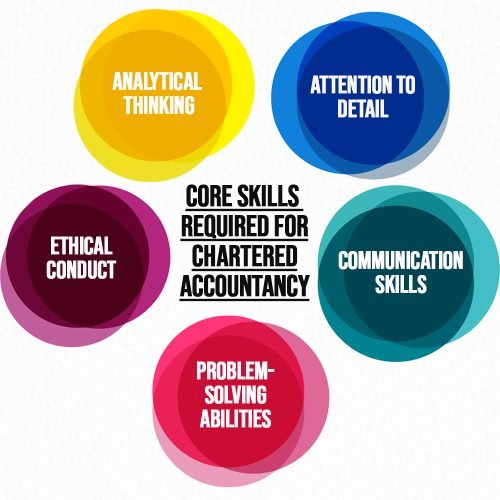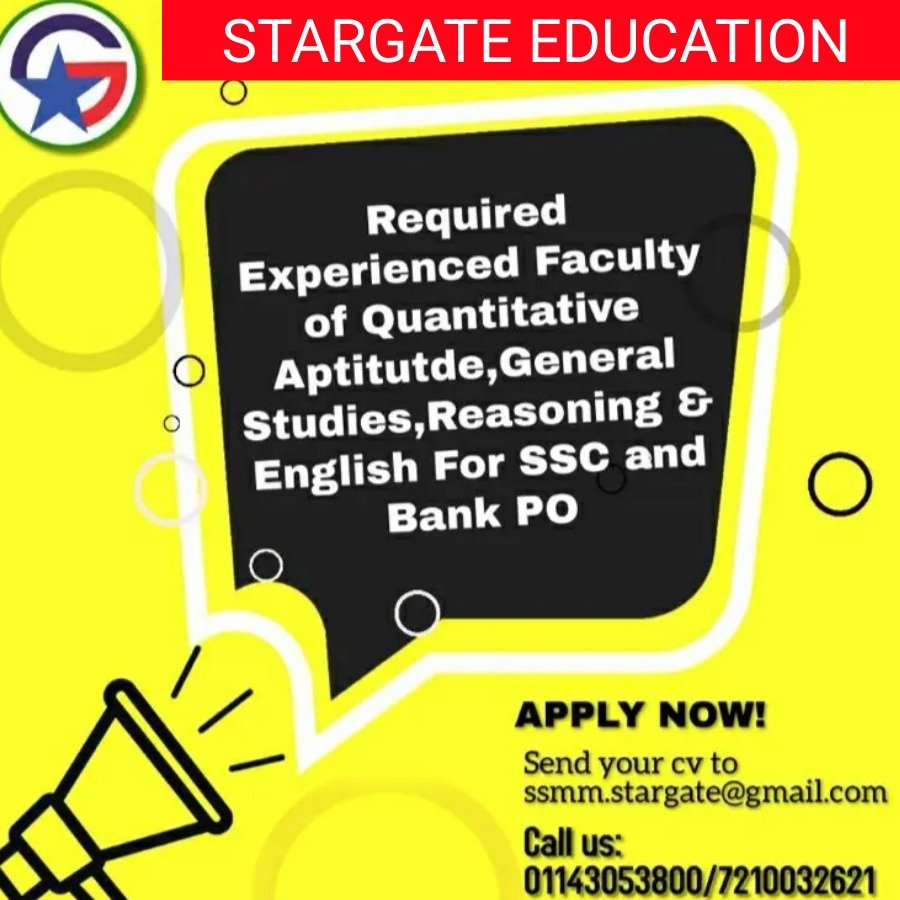CUET UG 2026 preparation guide for Class 12 students with...
By Stargate Education Team -------- Last Updated On 27/7/2023
We provide free counselling on CA Course. Clear all your doubts now.

In the realm of career choices, students often find themselves contemplating their options and seeking guidance. One such question that arises in the minds of science students is whether they can pursue a career in Chartered Accountancy (CA). The field of CA predominantly involves finance and accounting, and it is natural for science students to wonder if their background aligns with this profession. In this article, we will explore the possibilities and requirements for science students to become successful CAs. Let's dive in and uncover the truth behind this intriguing question.
In today's fast-paced world, career paths are becoming increasingly diverse and interconnected. While science and finance may seem like disparate fields at first glance, they often intersect in unexpected ways. Science students possess a strong foundation in analytical thinking, problem-solving, and logical reasoning, which are highly valuable skills in the world of finance. So, let's explore whether a science student can leverage their abilities and pursue a career in CA.
Chartered Accountancy is a prestigious profession that involves providing financial advice, auditing, and assurance services to organizations and individuals. CAs play a vital role in ensuring the financial health and compliance of businesses. Their expertise extends beyond numbers and financial statements; they act as trusted advisors, guiding clients in making sound financial decisions.

To excel as a Chartered Accountant, certain skills are crucial regardless of your educational background. These skills include:
CAs need to analyze complex financial data, identify patterns, and draw meaningful insights to support decision-making.
Precision and accuracy are essential in financial reporting and auditing to ensure compliance with regulations.
CAs must tackle intricate financial problems, provide solutions, and devise strategies to optimize financial performance.
Effective communication is vital for CAs to convey financial information clearly and collaborate with clients and colleagues.
Upholding professional ethics and integrity is paramount in the field of chartered accountancy.
The Institute of Chartered Accountants of India (ICAI) has unveiled a new and revitalized CA education and training scheme, slated for launch on July 1, 2023. Explore comprehensive information encompassing eligibility criteria, syllabus details, examination patterns, and the stringent qualifying criteria within the ambit of the ICAI CA New Scheme of Education and Training for May 2024.
Want to pursue a career in CA?
While science students may not have an academic background in finance, they possess transferable skills that can facilitate their transition to the world of finance. Adapting to a new field may seem daunting, but with the right approach and determination, science students can overcome the initial challenges. Here are a few steps to ease the transition:
Evaluate your interest in finance and accounting. Assess whether you enjoy working with numbers, analyzing data, and solving financial puzzles.
Start by familiarizing yourself with fundamental financial concepts and principles. Online courses, books, and tutorials can provide a solid foundation.
Consider enrolling in introductory finance courses to deepen your understanding of financial management, accounting principles, and taxation.
Connect with professionals in the field, such as CAs or finance professors, to gain insights into the profession and seek guidance on the path ahead.
Our counsellor have 10+ years of experience in this field.

To become a Chartered Accountant, you need to meet specific educational requirements and qualifications. The path typically involves the following steps:
Science students can enroll in the CA Foundation Course offered by the Institute of Chartered Accountants of your country. This course introduces students to various aspects of finance, accounting, and business laws.
After completing the Foundation Course, science students can progress to the Intermediate Course, where they delve deeper into subjects such as auditing, taxation, financial management, and corporate laws.
As part of the CA curriculum, students are required to undergo articleship training, which provides practical experience in accounting, auditing, and taxation.
Once the Intermediate Course and articleship training are completed, science students can appear for the Final Course examinations conducted by the Institute of Chartered Accountants.
Successful completion of the Final Course exams, along with the fulfillment of other criteria, leads to the award of the prestigious Chartered Accountant membership.
Obtaining a professional certification, such as the Chartered Accountant designation, holds immense value in the finance industry. It not only showcases your expertise and credibility but also opens doors to a wide range of career opportunities. Professional certifications demonstrate your commitment to continuous learning and upholding the highest standards of professional conduct.
While science students may encounter certain challenges during their journey to become CAs, they also possess unique advantages. Let's explore both aspects:
Adapting to a new field, mastering financial concepts, and facing a rigorous examination process can be challenging for science students.
Science students bring a fresh perspective to the field of finance. Their strong analytical and problem-solving skills enable them to approach financial challenges from a unique angle.
To excel in the CA profession, thorough preparation and effective study techniques are crucial. Here are some tips to help science students build a strong foundation:
Create a well-organized study plan, allotting sufficient time for each subject and topic.
Solve previous years' question papers and mock exams to familiarize yourself with the examination pattern and improve time management.
Collaborate with fellow CA aspirants to discuss concepts, solve problems, and gain insights from different perspectives.
Leverage online learning platforms, educational apps, and accounting software to enhance your understanding and streamline your study process.
To complement theoretical knowledge, gaining practical experience through internships is invaluable for aspiring CAs. Seek opportunities to intern at accounting firms, financial institutions, or corporate finance departments. Practical exposure will not only enhance your skills but also provide a glimpse into the day-to-day responsibilities of a Chartered Accountant.
Networking plays a pivotal role in any profession, and the same holds true for aspiring CAs. Attend professional seminars, conferences, and workshops to connect with experienced professionals in the accounting industry. Building a strong network can lead to mentorship, career guidance, and potential job opportunities.
The field of finance and accounting is dynamic, with evolving regulations, technological advancements, and changing market trends. To stay ahead, it is crucial for CAs to embrace continuous learning and upgrade their skills. Engage in professional development activities, pursue advanced certifications, and stay updated with the latest industry practices.
As a science student-turned-Chartered Accountant, you can explore diverse career paths in the finance industry. Here are a few potential career avenues:
Joining auditing firms and providing assurance services to clients, ensuring compliance with financial regulations and standards.
Working as a financial analyst, providing insights on financial performance, forecasting, and budgeting.
Specializing in tax planning, tax compliance, and offering expert advice on tax-related matters.
Becoming a management accountant, responsible for cost analysis, financial decision-making, and performance evaluation.
Utilizing your financial expertise to start your own business or consultancy firm.
Real-life success stories can serve as inspiration for science students considering a career in CA. Many accomplished CAs have come from science backgrounds and have thrived in their professional journeys. Their experiences demonstrate that with dedication and a passion for finance, science students can achieve remarkable success in the field of chartered accountancy.
Absolutely! A science student can pursue CA without a commerce background. The CA curriculum is designed to provide the necessary knowledge and skills, irrespective of your educational background.
While commerce students may have a head start due to their familiarity with financial concepts, science students possess analytical and problem-solving skills that can be advantageous in the field of chartered accountancy.
Clearing all CA exams in the first attempt is not a requirement. The key lies in perseverance, dedication, and a continuous learning mindset. Many successful CAs have faced multiple attempts before achieving their goals.
Yes, science students can specialize in various areas within the CA profession, such as taxation, auditing, financial management, or forensic accounting. Specializations allow you to deepen your expertise and cater to specific client needs.
The demand for qualified CAs is significant worldwide. Science students who become CAs can explore opportunities both within their home country and internationally, depending on their career aspirations.
In conclusion, a science student can indeed pursue a career in Chartered Accountancy. Although the transition from science to finance may require some effort, science students possess valuable skills that can contribute to their success as CAs. By following the outlined educational path, building a strong foundation, gaining practical experience, and continuously upgrading skills, science students can embark on a rewarding journey in the world of chartered accountancy. So, if you're a science student with a passion for finance, seize the opportunity and explore the realm of CA.
CUET UG 2026 preparation guide for Class 12 students with...
CUET UG 2026 Syllabus Released on cuet.nta.nic.in Download subject-wise PDFs,...
Looking for the best coaching institute in Laxmi Nagar Delhi?...
CUET 2026 Registration Common Form-Filling Mistakes to Avoid, including personal...
CUET UG 2026 preparation guide for Class 12 students with...
CUET UG 2026 Syllabus Released on cuet.nta.nic.in Download subject-wise PDFs,...
Looking for the best coaching institute in Laxmi Nagar Delhi?...
CUET 2026 Registration Common Form-Filling Mistakes to Avoid, including personal...
Start Your Mock Test!
Begin your journey with us!
Enter your details and one our counsellor will connect with you shortly.
Register Now and Begin Your Journey Towards IPMAT Success!
Seize the opportunity! Gain exclusive access to India’s top IPMAT faculty and resources by signing up today.
Register Now for Expert CMA Coaching!
Get access to India’s best CMA Foundation faculty and resources by signing up today.
Sign Up Today and Get Started on Your Path to CUET PG Success!
Don’t let this opportunity pass! Get access to India’s best CA Foundation faculty and resources by signing up today.
Download CUET UG Syllabus Now!
Downlaod CUET UG Previous Year Papers Now!
Downlaod CUET PG Previous Year Papers Now!
Register Now for Expert CA Coaching!
Don’t let this opportunity pass! Get access to India’s best CA Foundation faculty and resources by signing up today.
Start Your Journey to a Successful LLB Career!
Whether you’re exploring your options, need expert guidance, or want a hands-on experience with our premium courses, we’ve got you covered. Fill out the form below
Note: Once you fill out the form, our team will contact you to provide the resources, guidance, or demo class details based on your preference.
Register now to get access to free mock tests, detailed brochure, previous year papers, WhatsApp channel for exam updates, and much more…
Start Your Journey to CUET UG Success Today!
Register now for free access to the CUET UG guide, eBooks, mock tests, and past papers delivered to your inbox!
Get Your Comprehensive CA Foundation Brochure
Ready to start your CA journey? Download our detailed brochure with course information, study plans, and more to kickstart your preparation!
Book Your Free Counseling Call Today!
Take the first step toward success with our expert guidance. Fill in your details, and our team will get back to you shortly to discuss how we can help you achieve your goals!
CA Foundation Sept – 2024 Question Paper
Ready to start your CA journey? Download our mock tests, study plans, and more to kickstart your preparation!
CA Foundation Sept – 2024 Mock Test Series
Ready to start your CA journey? Download our mock tests, study plans, and more to kickstart your preparation!
CA Foundation June – 2024 Mock Test
Ready to start your CA journey? Download our mock tests, study plans, and more to kickstart your preparation!
Book Your Free Counseling Call Today!
Take the first step toward success with our expert guidance. Fill in your details, and our team will get back to you shortly to discuss how we can help you achieve your goals!
Begin your journey with us!
Enter your details and one our counsellor will connect with you shortly.
Begin your journey with us!
Enter your details and one our counsellor will connect with you shortly.
Begin your journey with us!
Enter your details and one our counsellor will connect with you shortly.
Begin your journey with us!
Enter your details and one our counsellor will connect with you shortly.
Begin your journey with us!
Enter your details and start your mock test now.
Begin your journey with us!
Enter your details and one our counsellor will connect with you shortly.
Begin your journey with us!
Enter your details and one our counsellor will connect with you shortly.
Begin your journey with us!
Enter your details and one our counsellor will connect with you shortly.
Begin your journey with us!
Enter your details and one our counsellor will connect with you shortly.
Begin your journey with us!
Enter your details and one our counsellor will connect with you shortly.
Begin your journey with us!
Enter your details and one our counsellor will connect with you shortly.




[mailpoet_form id=”8″]
[mailpoet_form id=”6″]
[mailpoet_form id=”7″]
[mailpoet_form id=”2″]